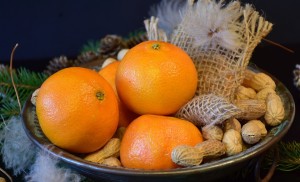Where do vegans get their protein?
So as a Vegan/Vegetarian we get this questions all the time…where do you get your protein??…. so here we go… By Lauren Venosta
Vegans don’t consume any products that come from an animal-based source. All macronutrients like protein,  carbohydrates, and fat are only consumed through plant-based sources—which can make it challenging to get enough protein.
carbohydrates, and fat are only consumed through plant-based sources—which can make it challenging to get enough protein.
A common question many vegans are asked is, “How do you get enough protein?” Contrary to popular belief, it is possible to get adequate amounts of protein on a vegan diet.
The important thing to note about plant-based protein sources is that they are more bioavailable to the body. This means that the amino acids (which make up the proteins) are more easily broken down and absorbed by the body. Remember, you aren’t only what you eat, but you are what you absorb! If your body can’t absorb the protein you’re eating, it is useless.
If you’re a vegan or are interested in following a plant-based diet, these foods pack a plant-based protein punch!
- Spirulina Spirulina is a blue-green algae that contains the essential amino acidsrequired for protein assimilation. It’s rich in chlorophyll, which you can see by the dark green color. 8.05 g of protein per 2 tablespoons
- Lentils These edible pulses are a powerhouse of protein, fiber, and iron. Lentils are an easy way to get plant-based protein because they are easily digested and are a versatile ingredient. 17.86 g of protein per cup of cooked lentils
- Pea Protein Green peas contain adequate levels of protein in their raw form (9 g per 1/4 cup), and pea protein is a popular alternative to the whey protein or egg-white protein that are commonly used in protein powders. 21 g of protein per 1/4 cup
- Chickpeas Chickpeas, also known as garbanzo beans, are meaty and filling. 14.53 g of protein per cup of cooked chickpeas
- Nutritional Yeast Nutritional yeast, a food additive grown on molasses and treated to be “inactive” (as compared to “active” baking yeast), is known for adding a “cheesy” flavor to many dairy-free recipes. The flavor is amazing, but its nutrient profile is even better! It’s loaded with amino acids and B vitamins. Amino acids are essential for protein synthesis and B vitamins help covert the food you eat into useable fuel for the body. 8 g of protein per 1/4 cup
- Quinoa Did you know that quinoa is a seed? Although it mimics a grain-based texture and cooks similar to rice, it is 100 percent seed. And that means it has more protein than many grains! 8.14 g of protein per 1 cup of cooked quinoa
- Almonds A study showedthat eating 1.5 ounces of almonds per day can lower your cholesterol, keep your heart healthy, and even reduce belly fat! 15.12 g of protein per 1/2 cup
- Chia Seeds In addition to their protein benefit, chia seeds are loaded with so much fiber they can actually absorb 10 to 12 times their size in water. This allows them to create a gel-like consistency and expand in your stomach, which keeps you fuller longer and improves digestive health. 8.91 g of protein per 1/4 cup
- Pumpkin Seeds Pumpkin seeds are not only protein rich, but rich in magnesium as well. Magnesium is helpful for regulating blood sugar levelsso eating pumpkin seeds is helpful for reducing your risk of type 2 diabetes. 9.75 g of protein per 1/4 cup
- Steel-Cut Oats Oats contain not only protein, but also fiber and iron. It’s important to purchase steel-cut oats, as they are higher in protein than processed oats. Steel-cut oats take longer to cook and have a more dense texture..14 g protein in 1/2 cup
There are plenty of vegan foods that contain protein. The important thing to remember when eating a vegan diet is to consume a wide-variety of different foods and colors. This will ensure you are getting all the necessary macronutrients (like protein) that are needed to sustain your body. Kick that lack-of-protein fear to the curb, because there is an abundance of bioavailable protein\ in plant-based foods.

No comments yet.